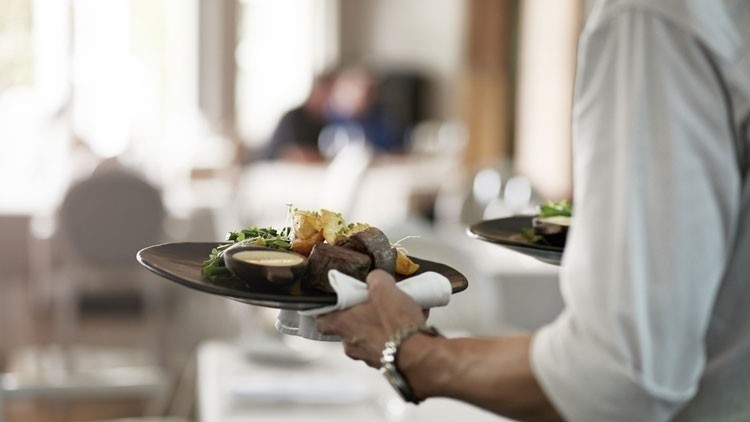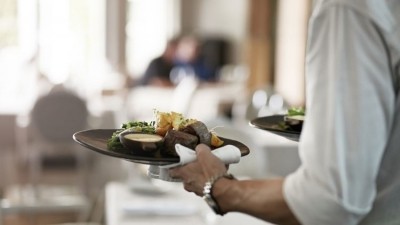Staffing struggles continue to stand in the way of hospitality's post-pandemic recovery

The new UK Hospitality Challenges report shows that business revenue is expected to rise by £36bn (30%) this year on 2019 turnover, providing firms can overcome staffing struggles and other pressures including soaring inflation and a faltering economy.
Restaurants and food outlets stand to gain the biggest share of this additional revenue at £11.9bn, with pubs and bars standing to gain £7.3bn.
The report, which surveyed decision-makers from 605 hospitality and leisure businesses, found that despite the ongoing struggles facing the sector confidence remains 'strikingly high' with 77% of respondents confident of growth this year, including 33% who are very confident; and only 5% of operators saying they are not at all confident.
Levels of confidence fluctuate across the UK. In the North East and South West of England and Northern Ireland, confidence among businesses is at more than 90%, while across much of the rest of the country it predominately sits between the 60% and 80% mark.
One notable contrast is between the West and East Midlands, where confidence falls from 80% to just 20%.
The general mood is underpinned by the finding that profit levels are largely returning to those seen pre-pandemic. Eating and drinking out spend in April was 45% up over 2019 levels, while average profit margins across both sectors now at 41% compared to 39% pre-Covid, according to Barclaycard.
Restaurant, bar and café margins were at 43%, 44% and 45% respectively, an increase of between three and four percentage points on pre-pandemic figures.
Talent challenge
The report states that 'attracting and keeping the right people is critical if businesses are to capitalise on the industry’s growth potential'.
Vacancies have soared as the number of people in the UK workforce has plunged by 1.9% since just before the pandemic. Illness, early retirement and care responsibilities have removed some workers; while for the hospitality industry, the dampening effect of Brexit on immigration has been a particular factor.
Cleaners, front-of-house staff and waitstaff are proving the hardest to recruit, while the survey suggests that demand for chefs and kitchen staff is beginning to level off.
One key way businesses are working to plug the gap is through widespread pay rises. housekeeping staff and bar staff are amongst the biggest winners this year so far with wages rising by 7.4% and 7.3%, respectively, on average.
The report says pay rises translate to an estimated £1,164 per year extra for those in fulltime waiting roles, for example, and £1,196 for kitchen staff.
But it’s not just about pay. Businesses are also using other ways to lure potential employees, such as embracing flexible working (23%), investing in staff welfare initiatives (22%) and introducing bonuses (22%).
Additionally, UK hospitality is particularly keen to support Ukrainians fleeing the war with 74% actively planning to hire refugees, rising to 88% in Northern Ireland and 86% in Scotland and the East of England.
Sector 'well placed' to ride out challenges
To sustain profits despite fast-rising costs, businesses are keeping on top of customers’ changing preferences – sometimes transforming their business models to match.
Almost one in three restaurants, for example, continues to diversify by introducing homedelivery options, such as meal kits. This is a pandemic trend that is being sustained by independent and premium outlets such as Six by Nico, in competition with direct delivery services such as Gousto and Hello Fresh.
Many businesses have also adjusted their offer, with the report showing a trend towards premiumisation. More than a quarter of operators reported a higher demand for premium products and services, with 37% of nightclubs and 33% of restaurants introducing premium product ranges.
Post-pandemic shifts have also led to 34% of businesses investing in CRM systems and four in 10 investing in new payment channels to better gauge and respond to customer needs. Close to half of businesses receive more than 30% of their takings through digital wallets, which have seen a widespread rise and are now accepted by almost as much as cash.
The report also indicated a post-pandemic pivot towards locally sourced, sustainable, and healthy options due to a rise in demand, with operators increasingly using dynamic pricing for such options. About a quarter of businesses have introduced new local ranges and sustainable options since Covid, while 35% of restaurants have launched new vegan and vegetarian ranges.
"It would be naïve to play down the existential nature of the cluster of threats facing the hospitality industry this year," says Mike Saul, head of hospitality and leisure at Barclays Corporate.
"But businesses that survived Covid-19 have already demonstrated their resilience. With imaginative solutions to staffing pressures and by fine-tuning their responses to customer preferences, the UK sector is well placed to ride out the challenges posed by the second half of 2022."















